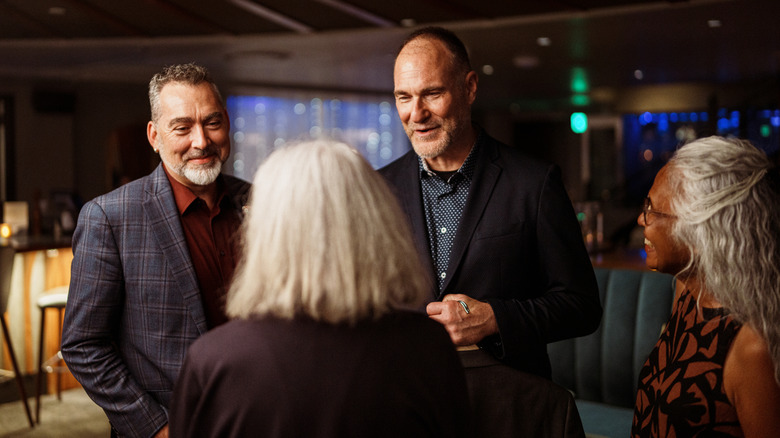Punctuality sticklers beware: If you are invited to a dinner party in France, it is considered a mark of good manners to arrive a little late. This can be confusing if you come from a culture where tardiness can be seen as rude. Just add it to the list of bizarre rules you have to follow in France.
There is a well-established social custom in France known as the “quart d’heure de politesse,” which translates literally into “a quarter of an hour of politeness.” This tradition allows guests to arrive at a dinner party around fifteen minutes late, giving the host a buffer for any last-minute preparations.
The “quart d’heure de politesse” is not just a quirky habit, it can give you a small insight into the values of French social life. The spirit of this rule is to show consideration for your hosts, giving them a few minutes flexibility for any final details but without arriving so late that it would disrupt the intended timing of the event.
When to arrive on time
The 15-minute buffer only applies to social occasions where there is a host making preparations. In contrast, it does not apply to baptisms, weddings, and other ceremonies. Even though strictly speaking there is a host making arrangements, it is actually polite to arrive fifteen minutes early so you don’t disrupt the proceedings. In other cases, as in an invitation for a meal at a restaurant, you will be expected to arrive at the time of the table reservation, as there are no preparations required from the hosts themselves. This subtle difference makes sense when you think about it, but it is one of those social norms in France that catches tourists off guard.
Strict timekeeping also applies to the workplace and business meetings, where punctuality is “de rigueur.” Arriving late to a professional rendezvous would be considered disrespectful and a sign that you don’t take the meeting seriously. The same goes for any appointment with French administration, doctors, and in general, anything that does not fall under a social context.




